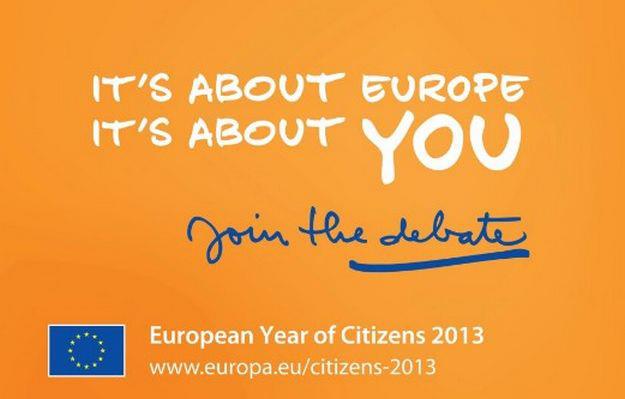Participatory plastic words: On the EU's European Year of Citizens
2013 is the European Year of Citizens!
The better the men and women of Europe understand their rights as EU citizens, the more informed the decisions they can take in their personal lives, and the more vibrant democratic life in Europe can be at all levels.
This is the vision for the European Year of Citizens 2013, which will provide an opportunity for people throughout Europe to:
-learn about the rights and opportunities open to them thanks to EU citizenship – particularly their right to live and work anywhere in the EU
-stimulate debate about the obstacles that prevent people from fully using these rights and generate specific proposals for addressing them
-encourage people to participate in civic fora on EU policies and issues.
The Year's activities will be organised as much as possible at the grass-roots level, by citizens and civil society organisations themselves.
Happy new year of citizens!
Although not strictly development-related the recent announcement of the ‘European Year of Citizens’ by the European Commission is an interesting example of the use of language that also happens in development to disguise meaningful citizen participation and setting up participatory smoke screens.
‘Learning’, ‘stimulating’ and ‘encouraging’ are three ‘plastic words’ that actually say more about the challenges of EU legitimacy than about citizen’s rights. Or, to follow Poerksen's definition of plastic words ‘These words are more like an instrument of subjugation than like a tool of freedom’ (#18).
They are soft, vague and fuzzy and, unlike ‘changing’, ‘challenging’ or ‘enforcing’ for example, do not indicate any meaningful follow-up processes and actions. This is about stimulating debate for the sake of producing cheap user-generated contents for some EU website. Or to say it with Poerksen's slightly awkward English definition: ‘Their many-sided generality brings about consensus’ (#22).
I also like the old-fashioned idea that you can
Meaningful citizen engagement – you are doing it wrong, EU!
P.S.: And what's with the gender dichotomy of ‘men and women of Europe’?! I can see an interesting citizenship and rights discussion right away...oh wait, I am only supposed to talk about the right to live and work anywhere in the EU...


Comments
Post a Comment